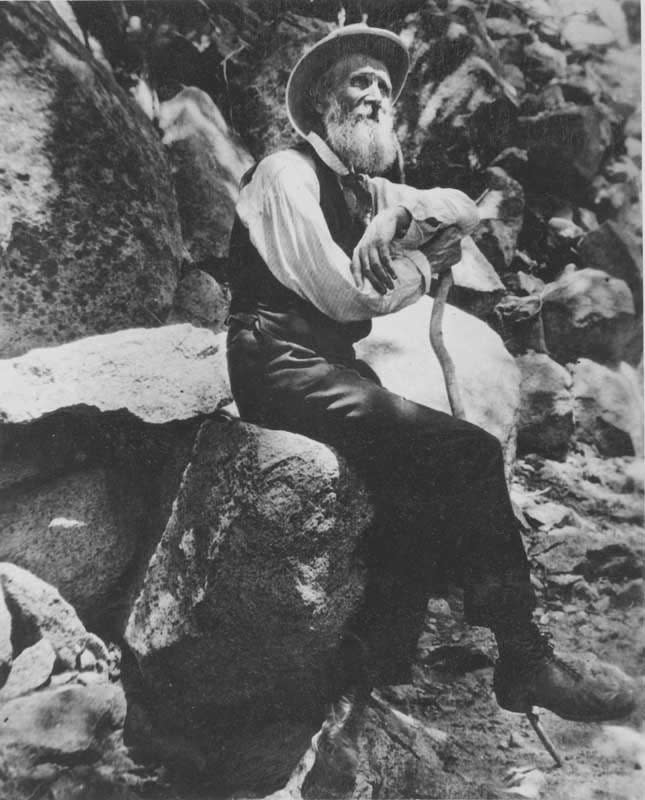Sierra Club confronts its racist, white supremacist past

The Sierra Club – the nation's oldest conservation organization – is confronting its racist, white supremacist history, which was embodied in the group's famous founder, John Muir.
In a statement released Wednesday, the 128-year-old organization said "as defenders of Black life pull down Confederate monuments across the country, it’s time to take down some of our own monuments, starting with some truth-telling about the Sierra Club’s early history."
Wednesday's statement was written by Michael Brune, the executive director of the Sierra Club, which also bills itself as "the largest grassroots environmental organization in the United States."
Brune details how the "beloved" and "iconic" Muir "was not immune to the racism peddled by many in the early conservation movement. He (Muir) made derogatory comments about Black people and Indigenous peoples that drew on deeply harmful racist stereotypes."
For example, Muir called African Americans lazy "Sambos" and referred to Native Americans as "dirty."
Other early Sierra Club members and leaders – like Joseph LeConte and David Starr Jordan – were vocal advocates for white supremacy and its pseudo-scientific arm, eugenics, the statement said.
Jordan pushed for forced-sterilization laws and programs that deprived tens of thousands of women of their right to bear children – mostly Black, Latina, Indigenous, and poor women, and those with disabilities and mental illness.
Muir’s words and actions still carry an especially heavy weight, as they "continue to hurt and alienate Indigenous people and people of color who come into contact with the Sierra Club," Brune wrote.
“Such willful ignorance is what allows some people to shut their eyes to the reality that the wild places we love are also the ancestral homelands of Native peoples, forced off their lands in the decades or centuries before they became national parks,” the statement said.
"For all the harms the Sierra Club has caused, and continues to cause, to Black people, Indigenous people, and other people of color, I am deeply sorry," Brune wrote.
A 'very dark history': Oregon's racist past fuels protests against injustice in Portland
Brune recently addressed 800 staff and 4 million members and volunteers with a note that was unusually frank and acquiescent, according to the Washington Post.
For years, Brune wrote in the note, the Sierra Club’s staffers of color “have led the call for transformative change and I and other white leaders have not responded with the urgency nor at the scale that the opportunities and challenges demand."
The Post said Brune promised to overhaul executive leadership, reallocate $5 million to reduce pay inequities, and devote greater attention to the communities suffering most from “environmental racism” and “structural injustice.”
Other mainly white environmental and conservation groups, such as the Union of Concerned Scientists and the Environmental Defense Fund, are also reckoning with their checkered past and present when it comes to race, the Post said.
Brune's online statement Wednesday concluded: "I know that the steps I’ve outlined above are only the beginnings of what will be a years-long process to reckon with our history, regain trust from the communities we have harmed, and create a diverse and equitable Sierra Club for the 21st century."
This article originally appeared on USA TODAY: Sierra Club confronts racist past, founder John Muir sambos comments

